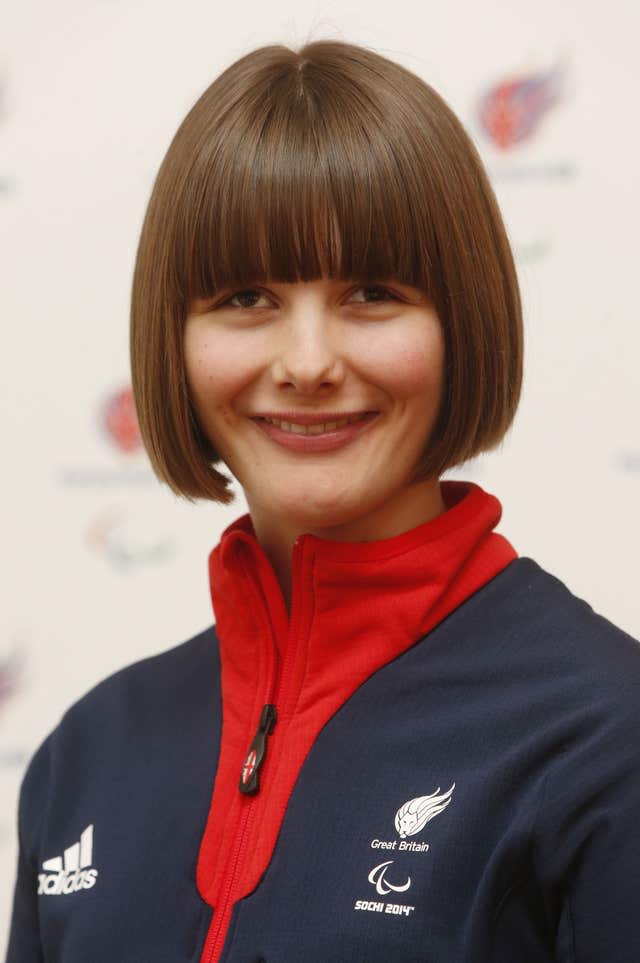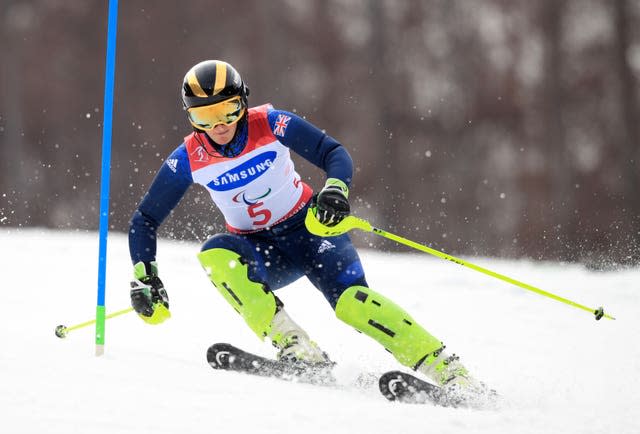Millie Knight to compete in Karate World Championships after skiing retirement
Millie Knight, Great Britain’s most successful Paralympic downhill skier, had not envisioned a trip to the Karate World Championships when she decided to take up the martial art as “just a hobby” while studying for her degree.
Yet that is precisely where the 24-year-old, who on Thursday announced she was hanging up her skis after winning four medals on her sport’s biggest stage, will find herself later this month after her hobby transformed into the next phase of her journey in elite sport.
Knight turned to karate after a leg injury sustained during the Beijing 2022 Paralympics and having suffered four career concussions.
By that summer she had been crowned both British and Commonwealth visually-impaired karate champion.

She told the PA news agency: “I started karate and absolutely loved it, but I never had the opportunity to pursue it further, and when we came back from Beijing last year I decided I would join a proper club and pick it back up again and take it more seriously.
“I didn’t expect to take it this seriously. It was going to be just a hobby, but I love it. It’s the most incredible sport.
“I won the English championships and then was selected for the Commonwealth, and it was kind of at that point that it was like ‘oh, wow, this is more than a hobby’.
“When I won the Commonwealths that was just bizarre, and now I’m off to the world championships.”
At 15, Knight became the youngest British athlete to compete in a winter Paralympics, being named Great Britain’s opening ceremony flag-bearer that year for the 2014 Sochi Games, a memory that still remains a contender for the highlight of her competitive skiing career.
Four years later, at Pyeongchang in 2018, Knight picked up three Paralympic medals – downhill and super-G silver as well as slalom bronze. Her fourth – a downhill bronze – came at the Beijing 2022 Games.
I am honoured to have been selected to represent England at the Karate World Championships. Unlike skiing, karate is self-funded, which means I cover all my expenses. Any help you can offer along the way would be greatly appreciated; thank you!https://t.co/OrjG4eWbt8
— Millie Knight (@knight_millie) September 26, 2023
On Thursday, Knight – ranked world number 10 in her karate discipline – announced she was retiring from skiing, a decision she is relieved to be making on her own terms.
She said: “I’m very grateful, and now I’m really happy. It really has taken some time to come to this decision, but (now) I can talk about it with a smile on my face.”
Knight is working towards a degree at the Open University, where she is writing her dissertation on a topic close to both her heart and head: concussions in sport.
Sorry for the delay of this post but I have decided to take a year out from Skiing. Following some incredible results last season, I feel that now is the best time to finally recover from the long-term effects of the multiple concussions I’ve sustained over the years. pic.twitter.com/FDOB2MyNjB
— Millie Knight (@knight_millie) November 24, 2022
The Canterbury native, who lost the majority of her sight due to an infection when she was six, was hospitalised four times for concussions during her skiing career.
She said, “I would never wish (concussions) upon anybody. By far the worst injury that I have ever had.
“The recovery process itself is horrendous. There’s no set time-frame. It’s not something that is spoken about enough.”
The Concussion in Para Sport (CIPS) Group of medical experts and researchers in 2021 released a consensus statement, coming to the conclusion that “there is a paucity of concussion research related to para sport”.
The commonly-used Sport Concussion Assessment Tool 5 diagnostic test, for instance, includes criteria like assessing whether or not an athlete has double-vision – something someone with total vision loss would not be able to report, while balance tests may not be applicable to those with lower-limb or other disabilities affecting mobility.

The group has developed recommended guidelines intended to help assessors adapt the tool to individual athletes, but Knight, who last year spoke at the International Concussion Consensus, hopes her dissertation will help spark more much-needed progress.
For now, she is enjoying the freedom of her new, non-contact sport where her risk of concussion has significantly lowered.
Knight added: “It’s far safer for your brain. I’m very much safe. It’s really nice that I can step out on the tatami and know that I’m going to be safe.”
